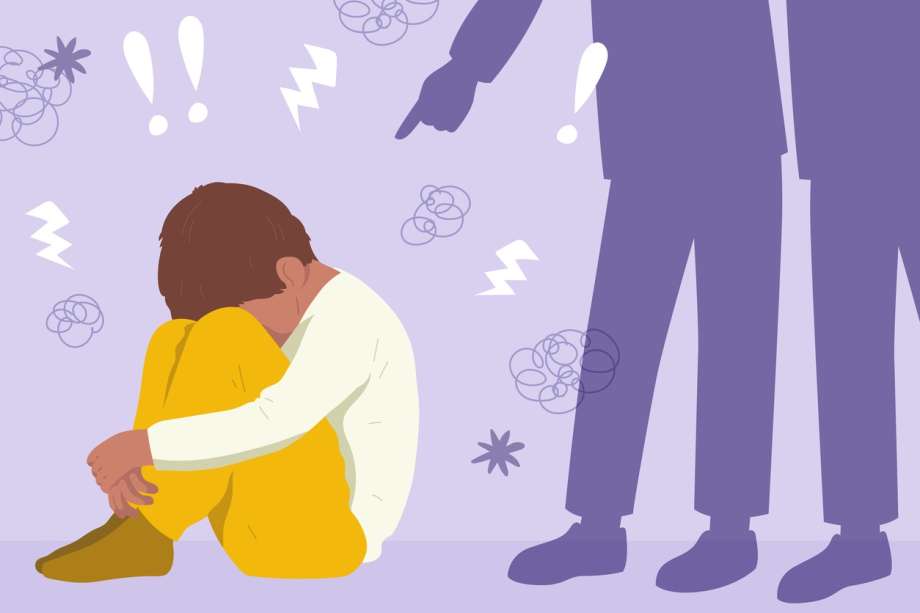Are You a Narcissistic Parent? The Traits of a Narcissist Parent

You may have heard of the terms “narcissistic parent”, “narcissistic mother” and/or “narcissistic father”. There are popular online communities where adults and teens seek support from others who believe they were raised by narcissists.
With the widespread use of the term ‘narcissist’, it can be easy for parents and children to misunderstand what it really means. How do you know if you were raised by narcissistic parents? And are you a narcissistic parent yourself?
This article provides a clear definition of narcissistic parenting, its signs, diagnosis, common traits, and actions.
It explains the effects this neglectful parenting style has on children and advice on how to care for your mental health if you were raised by narcissistic parents.
Lastly, it provides some healthy communication strategies and methods on how to not become a narcissistic parent so that you can stop the cycle of abuse with your own children.
Related: Golden Child vs. Scapegoat: When Parents Pick Favorites
What is Narcissistic Parenting vs Narcissistic Personality Disorder (NPD)?
Narcissism is defined as a personality disorder that exists on a spectrum of feelings of extreme self-importance. Narcissists are never satisfied with the attention they receive and constantly desire external validation. They lack self-awareness, are hyper-critical, lack empathy, and are very arrogant.
There isn’t a diagnosis for narcissism. Everyone can exhibit some narcissistic traits. Someone can have healthy narcissism by displaying strong self-esteem without a sense of entitlement or constant attention-seeking.
Narcissistic Personality Disorder (NPD) is a mental condition that is diagnosed by a psychologist or psychiatrist. A psychological evaluation where someone’s symptoms are assessed is required. The Diagnostic and Statistical Manual of Mental Disorders (DSM-5) is often used in the process.
Narcissistic parents view their children as an extension of themselves with the purpose of serving their egos. They have difficulty understanding the needs of their children and will often neglect their feelings.
Signs of a Narcissistic Parent

It’s important to keep in mind that parents are human; multiple factors shape how they behave including genetics, personal history, childhood trauma, early relationships with family members, general personality, and others.
Signs of a narcissistic parent include:
- They never take ownership of their mistakes or when things don’t work out. Instead, they blame others for their own wrongdoings.
- They shame and publicly make fun of their children as a form of discipline or entertainment.
- They demand time and energy from their loved ones and family members
- They do not show empathy, compassion, or care when their children are struggling.
- They gaslight others when they are confronted. Gaslighting means getting the other person to question their self-worth, feel confused, and distort their sense of reality so that the person gaslighting can take control over them.
- They use threats and guilt trips to manipulate others into doing what they want.
- They do not apologize or acknowledge when they have hurt others.
- Their love is conditional depending on how you treat them.
- It feels like you’re walking on eggshells whenever you’re around them
Effects of Being Raised By a Narcissistic Parent

When children are young, it can be difficult for them to recognize that their parents are narcissistic because of their lack of exposure to a variety of adults.
In addition, their parents are supposed to be their most trusted confidants and the first person they go to when they’re struggling. It can be challenging for children to understand that there are healthier ways for their parents to raise them.
Therefore, it is often until children are grown up and experience mental health issues that they start to reflect on the detrimental influence their parents had on their well-being.
Some common traits of children who have grown up with narcissistic parents include:
- Trust issues
- Depression and anxiety
- Low self-esteem, lack of sense of self and self-worthiness
- Feelings of crippling self-doubt, shame and/or guilt
- Inability to handle criticism or an extreme fear of rejection
- Tendency to people please and difficulty enforcing boundaries
- Co-dependent relationships where they are solely reliant on the other person for emotional or mental support
- Major difficulties in managing and self-regulating their emotions
Advice For Adult Children of Narcissists

Although you cannot change your past, there are ways to care for yourself and deal with your narcissistic parents. Please remember that maintaining a relationship with your parent is a choice.
Some tips for dealing with narcissistic parents include:
- Remind yourself that you cannot change who they are. It is up to them to do so. Even if they’ve promised they will change, it is highly unlikely they will. Do not accept their empty promises that are not followed with true positive action.
- Listen to your gut when you feel triggered, insecure or unsafe when you’re around them, and leave the situation if you need to.
- Don’t confront them with their narcissistic traits because they do not have the self-awareness or empathy to reflect on their behavior. They will twist your words and end up hurting you more.
- Avoid putting a lot of time and energy into the relationship with your narcissistic parent. Instead, focus on the healthy relationships you do have and invest your efforts in the social connections that uplift you.
- Define exactly what behaviors you will or will not tolerate and develop a plan of action when they behave that way
- Set boundaries and enforce them by directly communicating them to your narcissistic parent. Clear boundaries include the type of involvement they will have in your life and your children’s lives, the role you have in their life, and how much you will see them and under what context.
- Seek professional help for your mental health. It can be incredibly beneficial to attend counseling. A psychotherapist can help you determine how to move forward, develop coping strategies and give you a sense of control over your parent-child relationship.
The most important thing to prioritize is your emotional well-being and taking care of your mental health. This may mean setting boundaries, minimizing contact, and/or taking a break from the relationship. Or this could mean choosing to end the relationship and cutting off contact permanently.
How to Avoid Narcissistic Parenting
The first step to avoiding narcissistic parenting is to recognize whether you are guilty of some of these traits. Some tips include:
- Practice gratitude: Regularly express what you’re thankful for so that you can learn to appreciate others and the things in your life that do not feed your ego.
- Avoid degrading your children: It’s normal and healthy for parents to teach their children right from wrong and help them correct their mistakes. However, this needs to be done with compassion, and patience and without shame or belittlement.
- Do not minimize or play down their emotions: Letting your children express their emotions allows them to learn how to self-regulate and develop ways to manage their feelings. Instead of restricting them, listen and try to empathize with their struggles.
- Get to know your child as an individual: Your children have unique personalities, likes and dislikes, hobbies, and interests. These may or may not be the same as yours. It’s important to spend time with your children and get to know them on a personal level. Build trust with them by limiting your judgment and respecting their privacy.
For resources on how to get help if you or someone you know is experiencing child neglect or emotional abuse from their parents, contact the Childhelp National Child Abuse Hotline.

